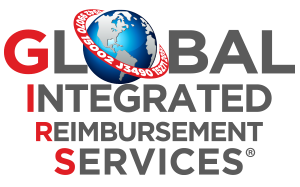GIRS Q/A Session
Wednesday, March 30, 2013
GIRS is a global reimbursement consulting services company providing reimbursement strategies for improving market access to pharmaceuticals, biologics, diagnostics, medical devices, and supplies. We recently had the opportunity to sit down with GIRS President, Sajini Thomas, to talk about reimbursement strategies and how GIRS is generating results for the device industry.
Tell us about your company, what’s unique about GIRS?
At GIRS, we have taken the extra step to provide services—and methods of delivering those services—that other firms often have not. For example, we provide our clients support throughout the life cycle of their products, not just at launch. Additionally, we integrate our reimbursement service with clients’ regulatory, clinical, and marketing strategies. We help create this synergy in a variety of ways, including helping companies integrate reimbursement strategies with regulatory, clinical, and marketing strategies by coordinating these initiatives and aligning them with payer requirements, stakeholder needs, and regulations.
Many clients come to us because they cannot find this depth and breadth of services at other firms. We are persistent, resourceful, and prepared to deploy several different strategies to get results for clients.
What services do you provide to the medical device industry?
GIRS partners with clients to improve market access for pharmaceuticals, devices, biologics, lab tests, combination products, and surgical supplies. We provide medical technology clients with counsel coding, coverage, and payment strategies. We develop integrated reimbursement strategies for clients, including hotline services for drugs, devices, and diagnostics to assist providers, payer coverage negotiation, and developing professional society support. All these services help improve patient access to breakthrough treatments and lead to product adoption by physicians in the community.
Where do you see companies getting it wrong when it comes to their reimbursement strategies?
Sometimes medical technology manufactures start considering product reimbursement strategy and the reimbursement planning process too late in the game. We can work with clients at ANY stage of the game on evidence development, coding, coverage, and reimbursement but it’s much more productive and effective if we’re brought in early in the process. Often clients will wait until they’ve received FDA approval, or even until they’ve already been given a code (which could be inappropriate for their product). The good news is, even if that is the case, we can help them appeal the coding decision. Another common mistake is not designing clinical studies with payer desired variables – this and the lack of support from experts with established payer relations leads to major roadblocks in patient access and market uptake of breakthrough technologies.
In addition, not finding the right reimbursement partner that is a good fit for their company in terms of both technical expertise and quality of service and follow-through can be a major roadblock to getting successful coverage for their products.
Can you share a success story or example?
We have several successes that are significant for our clients, providers, and for patient access:
- We helped reverse Medicare contractor non-coverage for a biologic in one year through our payer advocacy services, the GIRS Payer Advocacy Compass (PAC)™.
- Our Payer Advocacy Compass (PAC)™ has successfully expanded coverage for our clients’ products. In one case, we helped increase commercial payer-covered lives for a biologic from nearly a 160 million in 2010 to more than 185 million in 2012, mainly due to positive coverage as a result of effective payer advocacy services.
- Our knowledgeable staff helped revise key sections of the new CPT® Coding Book.
- We developed successful market entry strategies in the U.S., Canada, and Europe for a point-of-care diagnostic based on global reimbursement assessments. We are among the few companies that have extensive experience in point-of-care diagnostic reimbursement experience.
- The GIRS InContact Reimbursement Line™ has a proven track record for contributing to patient access and increased sales. Our support of an unlisted code contributed to a 30% increase in sales for one client.
What trends do you see emerging in the drug/device industry that might bring substantial changes in the coming months/years?
I think the fact that more than 50 “blockbuster“ drug patents are going to expire in the next few years is going to have a major impact on the industry. Pharmaceutical companies are under intense pressure to replace these drugs, which have represented 50 to 60 percent of pharmaceutical sales, with new drugs, so, I think we’ll see an uptick in pharmaceutical development.
But, there is also a payer trend, accelerated by health care reform, to require more rigorous evidence of clinical effectiveness, comparative effectiveness, and cost effectiveness of new products compared to established alternatives. GIRS can help clients understand and meet payer expectations of evidence for new drugs and devices.
One industry trend in particular that has already shown huge growth potential are biologic-based drugs, such as monoclonal antibodies (mAbs), therapeutic proteins, and vaccines. Development of small-molecule drugs that make up the bulk of our traditionally recognized blockbuster drugs will soon start to taper off in favor of biologics and, at GIRS, we actually have a strong focus on biologic reimbursement. For these reasons, I look forward to the emergent new product development in this area and taking on new coding and coverage challenges in the near future.
How might companies benefit at the juncture of strong regulatory and reimbursement strategies? What’s the payoff at this intersection for companies that take an integrated approach to their product’s success?
We find that integrated strategies for regulatory and reimbursement success help our clients improve patient access to their pharmaceuticals, devices, diagnostics, and biologics. This includes helping companies to succeed by encouraging them to adopt sound regulatory strategies. When evidence is under development, obtaining reimbursement through provider support hotlines and benefit verifications and appeals services helps further improve market uptake and patient access of our client’s pharmaceuticals, medical devices, diagnostics, and biologics products. Strong payer advocacy efforts, including coverage with evidence development proposals, further ensure that our client’s products are here to stay for the long haul.
Helping people by improving quality of life or extending life expectancy is why so many people get into this business, so, why wouldn’t you want to offer the benefits of your product to as many people as possible? Our integrated approach also ensures that our clients are implementing safer and more effective marketing and sales strategies.

